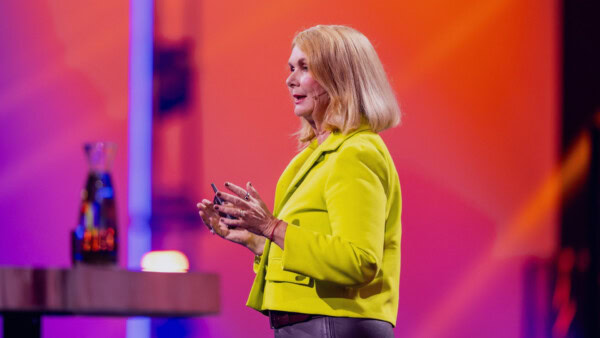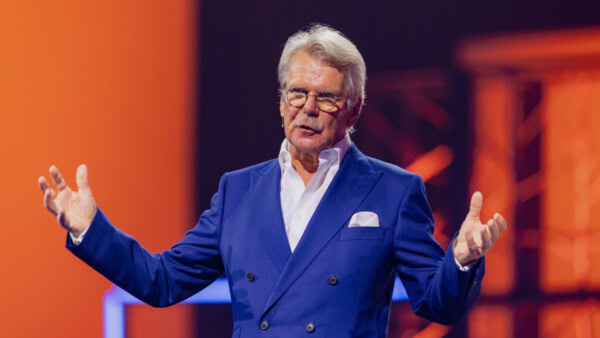11Oct2024
Brené Brown has spent over two decades studying vulnerability, courage, and empathy. Her powerful insights have changed how people think about leadership, personal development, and connection. For Brené, daring to lead is finding the courage to do the right thing for your people—even when the circumstances make it hard to do so.
The Four Skill Sets of Daring Leadership
Despite her 2 decades of research into leadership, Brené admits to concern about how her theories would hold up against “5 years of shitty data caused by the effects of pandemic, hybrid work, offices closing, and geopolitical instability.” However, after fully battle-testing her findings, Brené underlined four key skill sets that stack up to form the basis of daring leadership:
- Values. Not just values displayed on a wall, but values operationalized into behaviors
- Vulnerability. Understanding who you are in uncertainty and risk, as well as the ability to stay emotionally regulated and aligned
- Trust. Self-trust, trust in teams, trust in others, and the ability to repair trust when it falls apart
- Resilience. The ability to get back on your feet and embed lessons in your team and culture when you fail
Vulnerability – a Misunderstood Strength
According to Brené, vulnerability is often both misunderstood and mischaracterized.
“Vulnerability is the emotion we experience in times of risk, uncertainty, and emotional exposure. To be vulnerable is to be feeling uncertain, at risk, and emotionally vulnerable. It has nothing to do with disclosure of past traumas.”
Leaders who shy away from vulnerability by reaching for behavior armours like micromanagement and over decisiveness may avoid risks, but they also miss out on opportunities for growth, learning, and connection. And as her interviews with leaders from various fields—including military Special Forces and NFL athletes revealed, “There is no courage without vulnerability.”
In business, where everything can change in the time between analyzing a data set and making a call, the willingness to be all-in when you can’t control the outcome epitomises the skill of vulnerability.
Why Learners Will Usurp Knowers
Brené’s most recent work has focused on the leaders that will thrive in the future, particularly the skills and characteristics they are going to need to succeed. She also identified a capacity for uncertainty as a key indicator of a courageous leader. Uncertainty today is reflected in many organizations that are undergoing reskilling, however Brené stressed that reskilling starts with leadership.
“If you have created a culture in your organization where being a ‘knower’ is of greater value than being a ‘learner’, you are set up to fail. The best leaders in this environment will not have all the answers. They will have magnificent questions.”
People that can’t embrace radical uncertainty are likely hiding from the number one shame trigger at work: the fear of irrelevance. Unreasonably territorial and nostalgic behaviors often prelude a person shutting down at work, which ironically becomes a self-fulfilling prophecy of irrelevance.
Being Human
While AI is the first thought on most minds when the topic of workplace irrelevance surfaces, Brené offered a more nuanced perspective on its future path.
“The people developing the source code of generative AI absolutely agree there are things that will always be intensely and uniquely human. That’s the good news. The bad news is the majority of people are not great at what makes us uniquely human, because being uniquely human is really messy.”
It is, in Brené’s eyes, people with an extraordinary amount of self-awareness and a capacity for metacognition – the ability to objectively self assess and understand why they behave in certain ways – that will flourish. And you can’t be good at metacognition without vulnerability.
Soft Front, Strong Back, Wild Heart
To build an organization of leaders, Brené continued, leaders themselves need the capacity to maintain integrity in the face of uncertainty, risk, and emotional exposure. This is best is summarized by one of Brené’s favorite Buddhist sayings: “soft front, strong back, wild heart.”
In closing, Brené confessed “My hope is that you invest in yourself and your people. Skill up, challenge your mindset, and focus on what makes us human, makes us messy. We have the capacity for great love, great innovation, great kindness, great laughter. And that matters.”
Key points
- Vulnerability is a strength, not a weakness, and it is essential for building trust and fostering creativity.
- Courageous leadership means taking risks, embracing imperfection, and confronting discomfort.
- Empathy is crucial for connection and creates a supportive environment where people feel valued.
- Embracing uncertainty helps individuals overcome feelings of inadequacy and fosters a culture of openness.
- Leaders who show vulnerability and empathy inspire trust and create stronger, more resilient teams.
Questions for Reflection
- How can you incorporate vulnerability into your leadership style to build stronger relationships with your team?
- In what ways can you lean into discomfort and make courageous decisions, even when the outcome is uncertain?
- How do you currently practice empathy in your interactions with others? What can you do to enhance your empathetic listening skills?
- How does your “armor” impact your work or leadership? What steps can you take to embrace imperfection and foster a more open environment?
- How can you create a culture where fear is addressed openly and resilience is built among your team members?


